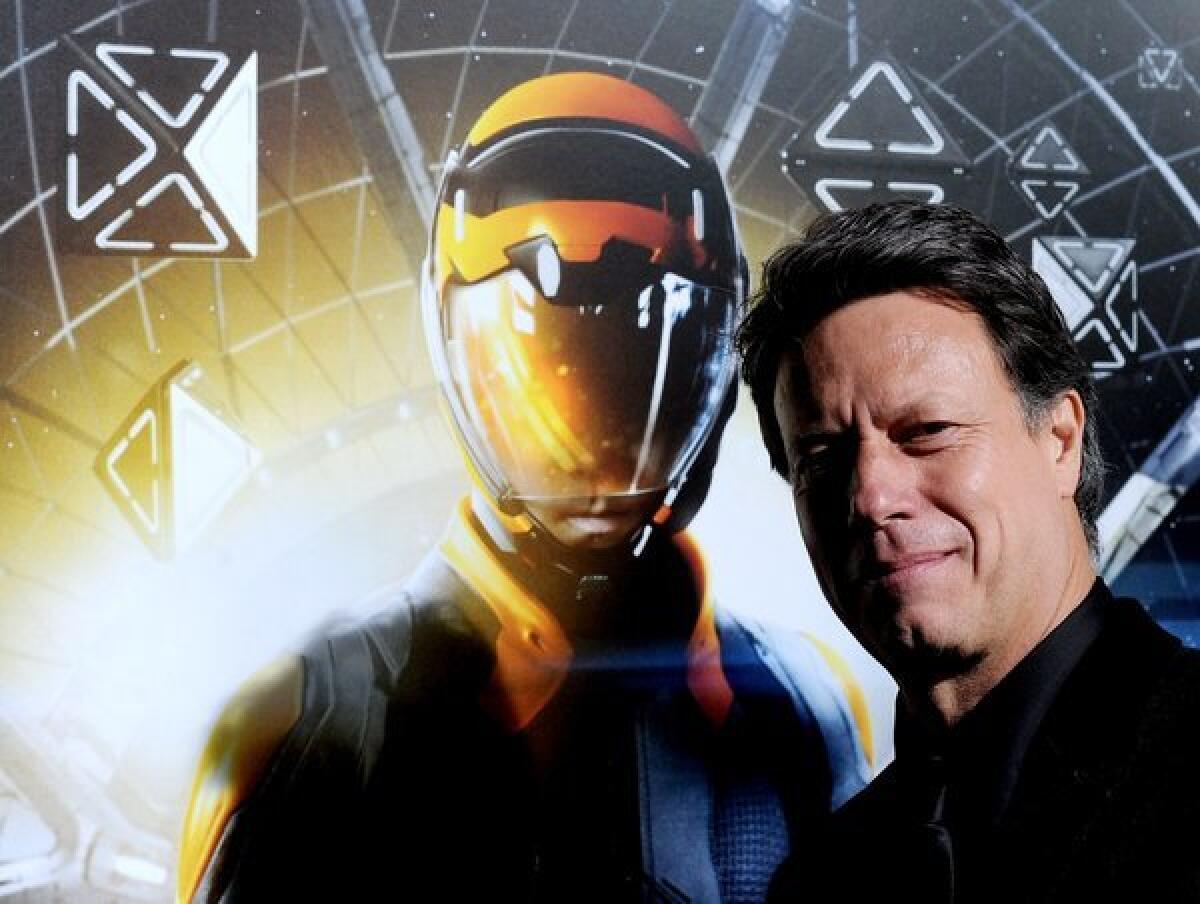Orson Scott Card’s anti-gay views haunt ‘Ender’s Game’ premiere

At the red carpet premiere of “Ender’s Game” on Monday night, director Gavin Hood fielded questions not just about the big-budget sci-fi film but the anti-gay rights stance of Orson Scott Card, author of the novel the film is based on. “I am distressed by Orson’s position on gay marriage,” Hood said. “I hold the opposite view. But I loved the book,” he told Entertainment Weekly. “Would I prefer to be doing a movie without controversy? Yes, but I’m not in the least distressed that we are having this conversation. It is a very important conversation.”
Producer Roberto Orci added: “I think if we’d detected any of the issues surrounding the controversy in the text itself or in Gavin’s script, yeah, it would have given us pause.... That just wasn’t our reality. I do think it is important when you are dealing with art to try and separate art from the artists.”
Card’s bestselling, Nebula-award-winning young adult novel “Ender’s Game,” was published in 1985 and is finally being brought to screen by Lionsgate, with Asa Butterfield and Harrison Ford starring. Yet the big-budget film remains hounded by critics and boycotts protesting Card’s long-held views on homosexuality and opposition to same-sex marriage.
The pressure on “Ender’s Game” follows a similar outcry directed at DC Comics when Card was tapped to write an issue of “Adventures of Superman.” Artist Chris Sprouse dropped out of the project, and DC shelved the manuscript, replacing Card’s story with the writing of Jeff Parker.
Card is a Mormon, a direct descendant of Brigham Young whose views are informed by the Church of Jesus Christ of Latter-day Saints. In 2004, Card published an essay suggesting homosexuality arose from “a disturbing seduction or rape or molestation or abuse.” In 2012, during the divisive Amendment One movement to ban gay marriage in North Carolina, where Card lives, he wrote an opinion piece for micro-local paper the Rhinoceros Times stating why gay marriage should be prohibited.
In recent days, Leah Rhyne explained to readers of the Charleston City Paper that because of Card’s politics, she’ll skip the movie. Noah Berlatsky wrote earlier this month in Salon, suggesting “Ender’s Game” provides a “passionate defense of genocide.” Yet the backlash began long before the film’s November release. In May, Aja Romano detailed Card’s long history of homophobia for the Daily Dot.
Still, whether the typical viewer will be swayed from watching a multi-million dollar Harrison Ford movie that involves space aliens remains to be seen. And if the New York Times mass-market paperback bestseller list is any indication, it’s doubtful. Card’s decades-old novel (“Ender’s Game” began as a story when Card worked for Brigham Young University Press) about government entities who breed child geniuses to fight hostile races has held the No. 1 spot for 53 weeks. It may be of interest to anyone intent on keeping film profits from Card’s pocket that a typical book-to-film option has bonuses for bestsellers, so hypothetically, for every week a book is on the bestseller list, a film company, such as Lionsgate, would pay an author $5,000 -- even before the film is in theaters. If that’s the case, again, hypothetically, Card has already pocketed a quarter-million in addition to the price of the option.
Still, there’s hope Card’s views on humanity will evolve, just as the views of the Mormon Church evolved as the world changed around it. When informed Utah couldn’t join the United States unless it practiced monogamy, its leader, Wilford Woodruff, received a revelation from God that instructed him to ban polygamy and embrace monogamy.
ALSO:
Why don’t iconic novels translate into film?
Veronica Roth’s ‘Allegiant’ builds up its heroine for revolution
Cheer up, Morrissey fans in America! His memoir is coming Dec. 3
More to Read
Sign up for our Book Club newsletter
Get the latest news, events and more from the Los Angeles Times Book Club, and help us get L.A. reading and talking.
You may occasionally receive promotional content from the Los Angeles Times.






